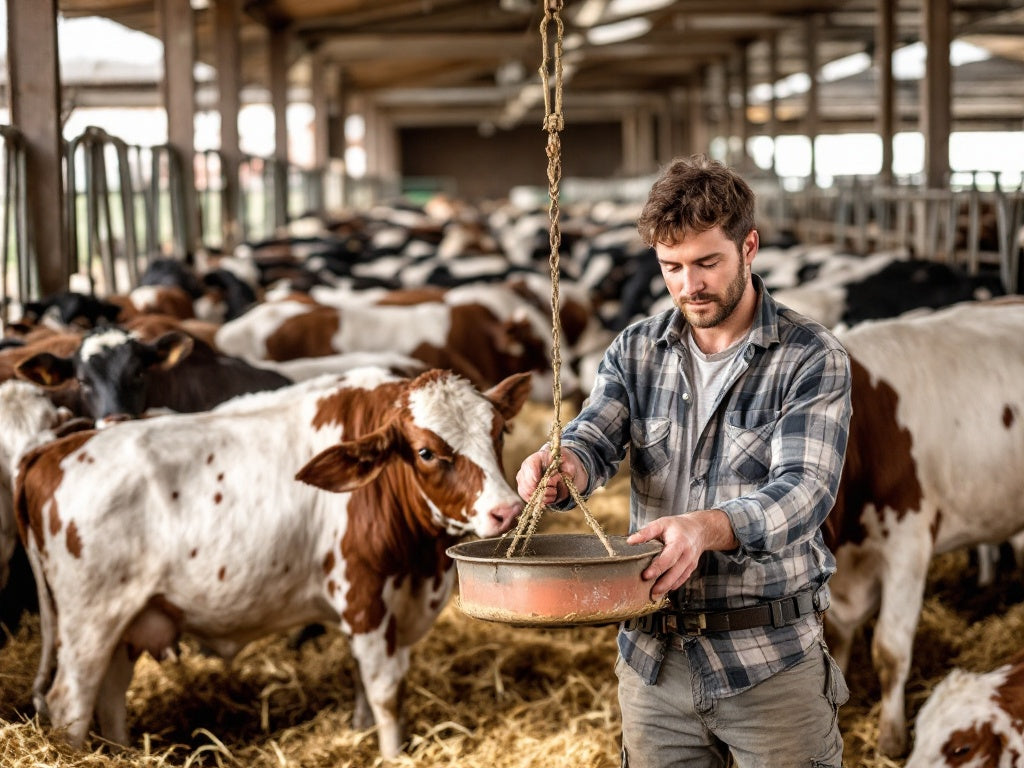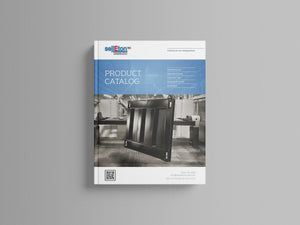
Choosing the Right Livestock Scales for Accurate Livestock Management
Understanding Livestock Weighing Needs
Accurate livestock weighing is crucial for maintaining optimal animal health, ensuring efficient feeding, and maximizing profitability. Understanding the specific weighing needs of your operation is essential for selecting the right scale and ensuring accurate and reliable results.
Livestock weighing needs vary depending on the type and size of animals, as well as the specific requirements of your operation. For example, cattle and swine require heavy-duty scales that can withstand frequent use and harsh environments, while smaller animals such as sheep and goats may require more precise scales with lower weight capacities.
When evaluating your livestock weighing needs, consider the following factors:
- Animal Size and Weight Range: Different animals have different weight ranges. Cattle, for instance, need scales that can handle their substantial weight, while smaller animals like goats require scales with lower capacities but higher precision.
- Frequency of Weighing: If you need to weigh animals frequently, investing in a durable, heavy-duty scale is essential to withstand regular use.
- Environmental Conditions: Consider the environment where the scale will be used. Scales exposed to harsh weather conditions or extreme temperatures need to be robust and weather-resistant.
- Space Constraints and Accessibility: Ensure the scale fits within your available space and is easily accessible for both animals and handlers.
- Data Collection and Management Requirements: Modern farming often relies on data-driven decisions. Scales with built-in data collectors or compatibility with external systems can streamline your operations.
By understanding your specific weighing needs, you can select a scale that meets your requirements and provides accurate and reliable results.
Why Livestock Weighing Is Essential for Farming and Animal Health
In farming operations, precision is key to maximizing efficiency and profitability. Accurate weighing of livestock plays a vital role in ensuring optimal animal health, improving farm management, and achieving financial success.
Livestock weighing scales provide critical data that farmers rely on to:
- Monitor Animal Growth: Regular weight checks help assess whether livestock is growing at a healthy rate, ensuring proper nutrition and care.
- Administer Medications and Feed: Dosages of medication and feed quantities often depend on the animal’s weight. Inaccurate measurements can lead to underfeeding, overfeeding, or ineffective treatments.
- Determine Market Readiness: Knowing the exact weight of animals ensures farmers meet market standards and maximize profits at sale.
- Breeding Management: Accurate weight records help in selecting the best candidates for breeding programs, improving genetic lines.
A reliable scale indicator is essential for accurate weight monitoring and data collection.
By incorporating reliable livestock weighing scales into daily operations, farmers can make data-driven decisions that enhance both animal welfare and operational efficiency.
Overview of Different Types of Livestock Weighing Scales and Load Bars
Choosing the right livestock scale for sale starts with understanding the various types available:
- Platform Scales: These scales are designed for larger livestock like cattle and horses. Animals stand on a durable platform that measures their weight accurately. Tru-Test is a brand known for its cost-effective and practical weigh systems for livestock, making it a popular choice among farmers.
- Portable Livestock Scales: Lightweight and mobile, these scales are ideal for farmers who need flexibility. They can be easily transported to different locations, making them perfect for multi-site operations.
- Crate Scales: Crate scales are built with enclosures to safely weigh smaller livestock, such as sheep or goats. They ensure the animal remains stationary during the weighing process.
- Chute Scales: These scales are integrated into livestock chutes, allowing for seamless weighing during loading or movement. They are particularly useful in high-volume operations.
- Axle Load Scales: Often used for transporting livestock, these scales measure the combined weight of animals and their transport vehicle, ensuring compliance with road regulations.
Each type of livestock weighing scale is suited to specific needs, so it’s essential to evaluate your farming operations before selecting one.
Features to Look for in Livestock Scales and Scale Indicator for Ease of Use and Durability
Investing in a livestock scale for sale requires careful consideration of features that enhance usability and longevity:
-
Durability
Livestock scales must withstand heavy loads, frequent use, and harsh environments. Look for models made from high-quality materials like steel or reinforced aluminum. -
Portability
For farms with multiple locations or varying needs, a portable livestock scale is invaluable. Ensure it is lightweight and easy to set up. -
Digital Display
A clear, easy-to-read digital display simplifies the weighing process and reduces errors. Advanced models may include connectivity options for data storage. -
Safety Features
Non-slip surfaces, side rails, or enclosed crates can prevent animals from slipping or escaping during the weighing process. -
Capacity
Ensure the scale can handle the maximum weight of your largest livestock. Overloading a scale can damage it and lead to inaccurate readings. -
Accuracy and Precision
High precision is crucial for small weight variations, especially when calculating medication dosages or feed rations. -
Ease of Cleaning
Scales exposed to dirt, mud, and animal waste should be easy to clean and maintain to prevent long-term damage.
By prioritizing these features, farmers can choose a livestock weighing scale that aligns with their needs while offering long-lasting value.
Selecting the Right Scale for Your Operation
Selecting the right scale for your livestock operation can be a daunting task, with numerous options available on the market. To ensure you choose a scale that meets your needs, consider the following factors:
- Scale Type: Different operations require different types of scales. Single animal scales are ideal for individual weight checks, while squeeze chute scales are perfect for high-volume operations. Load bars can be integrated into existing systems for versatile weighing solutions.
- Weight Capacity: Ensure the scale has a sufficient weight capacity to accommodate your largest animals. Overloading a scale can lead to inaccurate readings and potential damage.
- Accuracy and Reliability: Look for scales with high accuracy and reliability ratings. Scales with NTEP certification are a good benchmark for quality.
- Durability and Construction: Heavy-duty scales with rugged construction can withstand frequent use and harsh environments. Materials like steel or reinforced aluminum are excellent choices for long-lasting durability.
- Data Collection and Management: Consider scales with built-in data collectors or compatibility with external data collection systems. This feature is crucial for maintaining accurate records and making informed decisions.
- Security and Filter Options: Some scales offer advanced security features, such as password protection, to prevent unauthorized access. Filter options can help ensure accurate and reliable results by minimizing the impact of animal movement during weighing.
By considering these factors, you can select a scale that meets your specific needs and provides accurate and reliable results. Investing in the right scale not only enhances operational efficiency but also contributes to the overall success of your farming business.
How Accurate Weighing Impacts Profitability in Farming Operations
Accurate livestock weighing is directly linked to the financial success of farming businesses. Here’s how precision translates into profitability:
-
Optimized Feeding Programs
Overfeeding wastes resources, while underfeeding affects growth and market readiness. Accurate weight data allows farmers to tailor feeding programs, reducing costs and improving weight gain efficiency. -
Improved Health Management
Administering the right dosage of medications and supplements ensures healthier animals, reducing veterinary costs and increasing productivity. -
Market-Ready Livestock
Knowing the exact weight of animals ensures they meet market standards. Farmers can avoid underpricing and maximize returns at sale. -
Compliance with Regulations
Accurate weighing prevents overloading during transport, avoiding fines and ensuring smooth operations. -
Enhanced Breeding Programs
Tracking weight trends helps in selecting animals with the best growth rates and health profiles, improving herd quality over time.
Precision in livestock management not only improves day-to-day operations but also positions farmers for long-term success.
Conclusion
Livestock weighing is an indispensable part of modern farming. From monitoring animal health to optimizing feeding and meeting market demands, the right livestock scales can significantly enhance operational efficiency and profitability.
At Selleton Scales, we offer a wide range of livestock scales for sale, including portable options designed for convenience and durability. Explore our collection here and discover the perfect scale to elevate your farming operations today!
